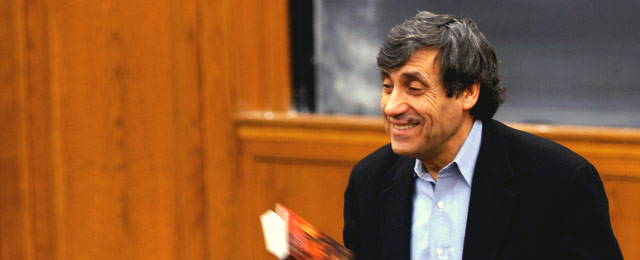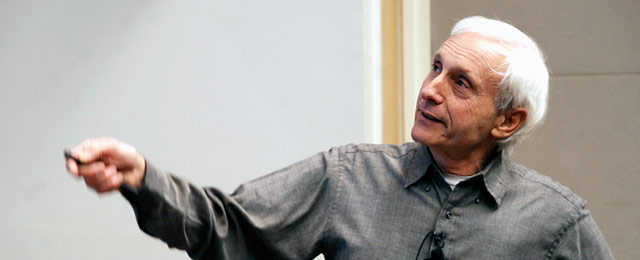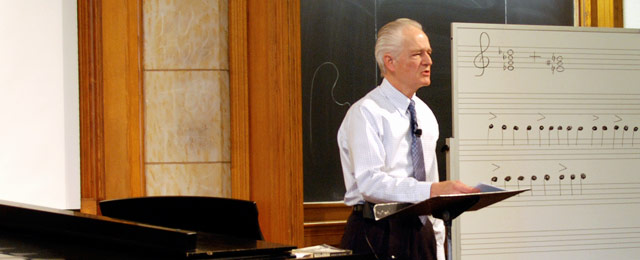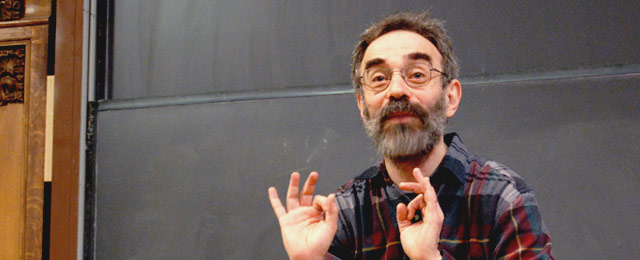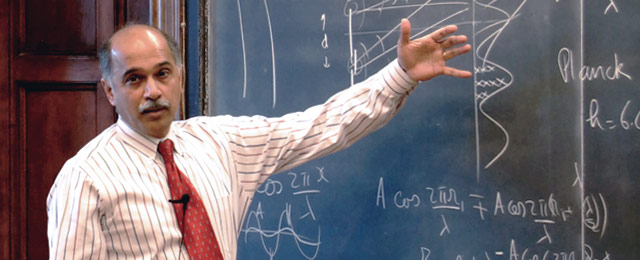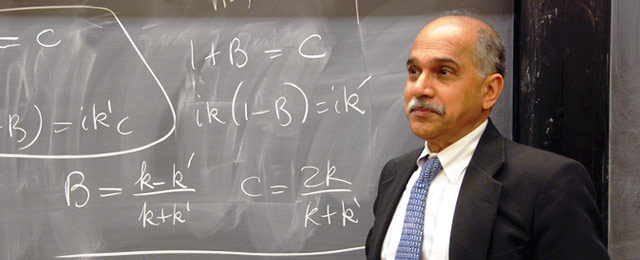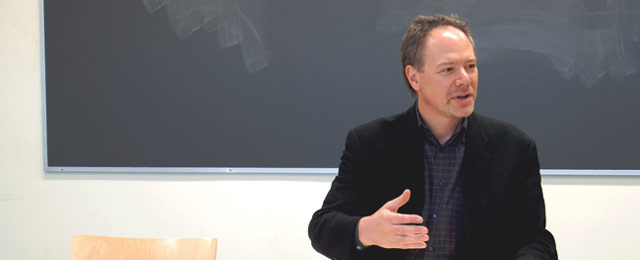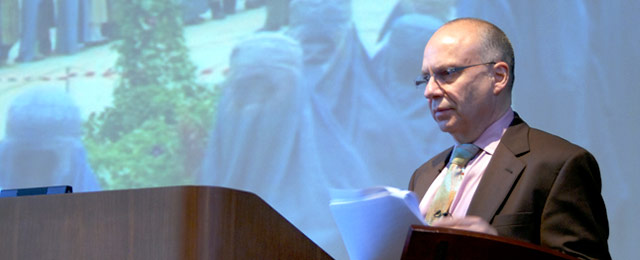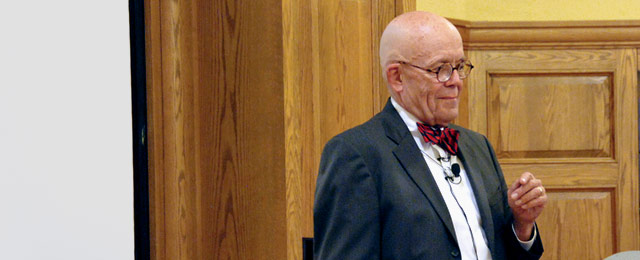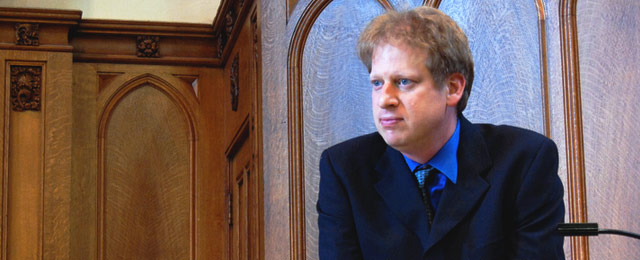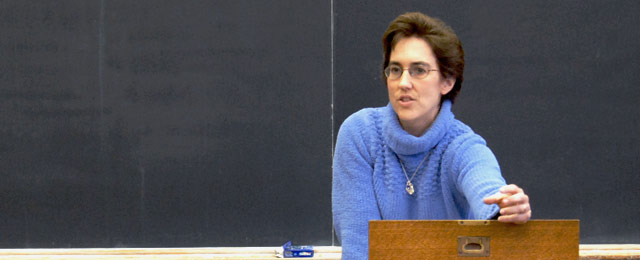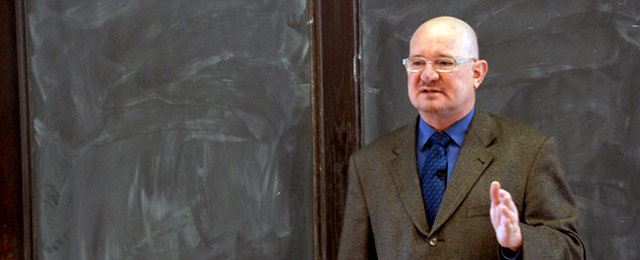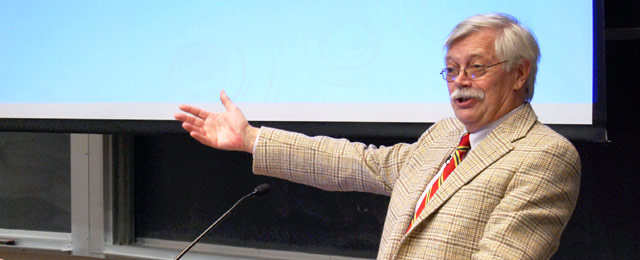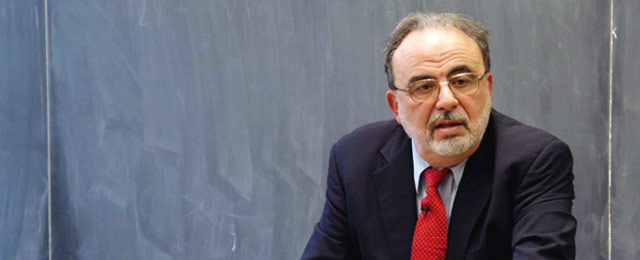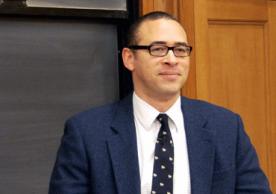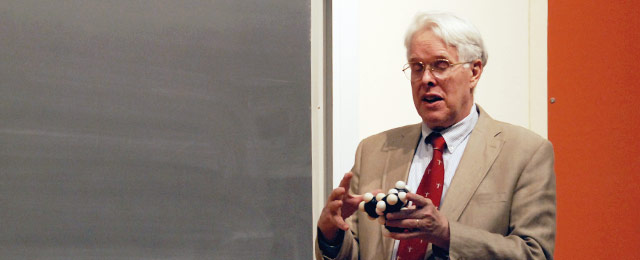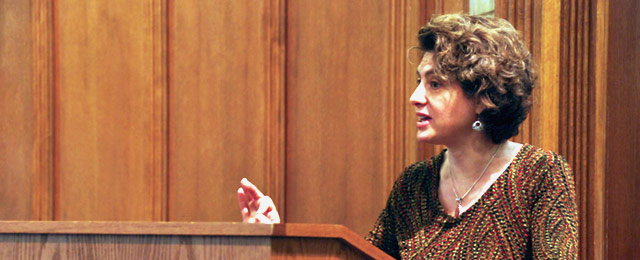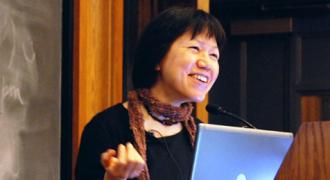Online courses directory (41)
The course is an introduction to Dante and his cultural milieu through a critical reading of the Divine Comedy and selected minor works (Vita nuova, Convivio, De vulgari eloquentia, Epistle to Cangrande). An analysis of Dante's autobiography, the Vita nuova, establishes the poetic and political circumstances of the Comedy's composition. Readings of Inferno, Purgatory and Paradise seek to situate Dante's work within the intellectual and social context of the late Middle Ages, with special attention paid to political, philosophical and theological concerns. Topics in the Divine Comedy explored over the course of the semester include the relationship between ethics and aesthetics; love and knowledge; and exile and history.
This survey course introduces students to the important and basic material on human fertility, population growth, the demographic transition and population policy. Topics include: the human and environmental dimensions of population pressure, demographic history, economic and cultural causes of demographic change, environmental carrying capacity and sustainability. Political, religious and ethical issues surrounding fertility are also addressed. The lectures and readings attempt to balance theoretical and demographic scale analyzes with studies of individual humans and communities. The perspective is global with both developed and developing countries included.
This course fosters the development of aural skills that lead to an understanding of Western music. The musical novice is introduced to the ways in which music is put together and is taught how to listen to a wide variety of musical styles, from Bach and Mozart, to Gregorian chant, to the blues.
There is one thing I can be sure of: I am going to die. But what am I to make of that fact? This course will examine a number of issues that arise once we begin to reflect on our mortality. The possibility that death may not actually be the end is considered. Are we, in some sense, immortal? Would immortality be desirable? Also a clearer notion of what it is to die is examined. What does it mean to say that a person has died? What kind of fact is that? And, finally, different attitudes to death are evaluated. Is death an evil? How? Why? Is suicide morally permissible? Is it rational? How should the knowledge that I am going to die affect the way I live my life?
This course provides a thorough introduction to the principles and methods of physics for students who have good preparation in physics and mathematics. Emphasis is placed on problem solving and quantitative reasoning. This course covers Newtonian mechanics, special relativity, gravitation, thermodynamics, and waves.
This is a continuation of Fundamentals of Physics, I (PHYS 200), the introductory course on the principles and methods of physics for students who have good preparation in physics and mathematics. This course covers electricity, magnetism, optics and quantum mechanics.
This course is intended as an introduction to political philosophy as seen through an examination of some of the major texts and thinkers of the Western political tradition. Three broad themes that are central to understanding political life are focused upon: the polis experience (Plato, Aristotle), the sovereign state (Machiavelli, Hobbes), constitutional government (Locke), and democracy (Rousseau, Tocqueville). The way in which different political philosophies have given expression to various forms of political institutions and our ways of life are examined throughout the course.
This course explores main answers to the question, "When do governments deserve our allegiance?" It starts with a survey of major political theories of the Enlightenment—Utilitarianism, Marxism, and the social contract tradition—through classical formulations, historical context, and contemporary debates relating to politics today. It then turns to the rejection of Enlightenment political thinking. Lastly, it deals with the nature of, and justifications for, democratic politics, and their relations to Enlightenment and Anti-Enlightenment political thinking. Practical implications of these arguments are covered through discussion of a variety of concrete problems.
In this course, we will seek to interpret capitalism using ideas from biological evolution: firms pursuing varied strategies and facing extinction when those strategies fail are analogous to organisms struggling for survival in nature. For this reason, it is less concerned with ultimate judgment of capitalism than with the ways it can be shaped to fit our more specific objectives--for the natural environment, public health, alleviation of poverty, and development of human potential in every child. Each book we read will be explicitly or implicitly an argument about good and bad consequences of capitalism.
What do your dreams mean? Do men and women differ in the nature and intensity of their sexual desires? Can apes learn sign language? Why can’t we tickle ourselves? This course tries to answer these questions and many others, providing a comprehensive overview of the scientific study of thought and behavior. It explores topics such as perception, communication, learning, memory, decision-making, religion, persuasion, love, lust, hunger, art, fiction, and dreams. We will look at how these aspects of the mind develop in children, how they differ across people, how they are wired-up in the brain, and how they break down due to illness and injury.
This course examines the Old Testament (Hebrew Bible) as an expression of the religious life and thought of ancient Israel, and a foundational document of Western civilization. A wide range of methodologies, including source criticism and the historical-critical school, tradition criticism, redaction criticism, and literary and canonical approaches are applied to the study and interpretation of the Bible. Special emphasis is placed on the Bible against the backdrop of its historical and cultural setting in the Ancient Near East.
This course provides a historical study of the origins of Christianity by analyzing the literature of the earliest Christian movements in historical context, concentrating on the New Testament. Although theological themes will occupy much of our attention, the course does not attempt a theological appropriation of the New Testament as scripture. Rather, the importance of the New Testament and other early Christian documents as ancient literature and as sources for historical study will be emphasized. A central organizing theme of the course will focus on the differences within early Christianity (-ies).
This course provides an overview of major works of social thought from the beginning of the modern era through the 1920s. Attention is paid to social and intellectual contexts, conceptual frameworks and methods, and contributions to contemporary social analysis. Writers include Hobbes, Locke, Rousseau, Montesquieu, Adam Smith, Marx, Weber, and Durkheim.
The course facilitates a close reading of Don Quixote in the artistic and historical context of renaissance and baroque Spain. Students are also expected to read four of Cervantes' Exemplary Stories, Cervantes' Don Quixote: A Casebook, and J.H. Elliott's Imperial Spain. Cervantes' work will be discussed in relation to paintings by Velázquez. The question of why Don Quixote is read today will be addressed throughout the course. Students are expected to know the book, the background readings and the materials covered in the lectures and class discussions.
The purpose of this course is to examine the African American experience in the United States from 1863 to the present. Prominent themes include the end of the Civil War and the beginning of Reconstruction; African Americans’ urbanization experiences; the development of the modern civil rights movement and its aftermath; and the thought and leadership of Booker T. Washington, Ida B. Wells-Barnett, W.E.B. Du Bois, Marcus Garvey, Martin Luther King Jr., and Malcolm X.
Warning: Some of the lectures in this course contain graphic content and/or adult language that some users may find disturbing.
This is a continuation of Freshman Organic Chemistry I (CHEM 125a), the introductory course on current theories of structure and mechanism in organic chemistry for students with excellent preparation in chemistry and physics. This semester treats simple and complex reaction mechanisms, spectroscopy, organic synthesis, and some molecules of nature.
Philosophy and the Science of Human Nature pairs central texts from Western philosophical tradition (including works by Plato, Aristotle, Epictetus, Hobbes, Kant, Mill, Rawls, and Nozick) with recent findings in cognitive science and related fields. The course is structured around three intertwined sets of topics: Happiness and Flourishing; Morality and Justice; and Political Legitimacy and Social Structures.
This course examines major works by Hemingway, Fitzgerald, and Faulkner, exploring their interconnections on three analytic scales: the macro history of the United States and the world; the formal and stylistic innovations of modernism; and the small details of sensory input and psychic life.
Warning: Some of the lectures in this course contain graphic content and/or adult language that some users may find disturbing.
Major developments in the political, social, and religious history of Western Europe from the accession of Diocletian to the feudal transformation. Topics include the conversion of Europe to Christianity, the fall of the Roman Empire, the rise of Islam and the Arabs, the "Dark Ages," Charlemagne and the Carolingian renaissance, and the Viking and Hungarian invasions.
This course explores the physical processes that control Earth's atmosphere, ocean, and climate. Quantitative methods for constructing mass and energy budgets. Topics include clouds, rain, severe storms, regional climate, the ozone layer, air pollution, ocean currents and productivity, the seasons, El Niño, the history of Earth's climate, global warming, energy, and water resources.
Trusted paper writing service WriteMyPaper.Today will write the papers of any difficulty.


